Cut Them Off At The Past, by Dennis O’Neil
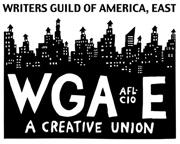 And the Screen Writers Guild lurches into a tenth week and if there’s any end in sight, I haven’t heard about it.
And the Screen Writers Guild lurches into a tenth week and if there’s any end in sight, I haven’t heard about it.
Last time, I mentioned the Academy of Comic Book Arts and its failure to do any significant negotiating on behalf of its members. ACBA wasn’t the first attempt, though, to organize those glorious mavericks, the comic book community. In the 60s…
Wait! Better issue a warning before I go further. Do not regard anything that follows as gospel. (In fact, you might consider not regarding the Gospel as gospel, but let us not digress.) I have no reason not to believe what I’m about to tell you except one: About a year before he died, Arnold Drake, who was a busy comic book writer at the time we’ll be discussing, told me that the story I had wasn’t the whole story, or even necessarily accurate. I don’t know why I didn’t press him for further information, but I didn’t.
Okay, the story:


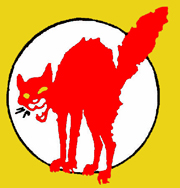 The television and movie Writers Guild strike lurches into its ninth week. If it goes on much longer, we may be doomed to even more staged “reality” and contest shows. Might be a good time to rekindle a book reading habit.
The television and movie Writers Guild strike lurches into its ninth week. If it goes on much longer, we may be doomed to even more staged “reality” and contest shows. Might be a good time to rekindle a book reading habit. New Year’s morning. Cold, wet, bleak.
New Year’s morning. Cold, wet, bleak.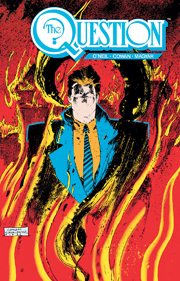 Danny and Fred were the last two kids in their grade to still believe in Santa Claus.
Danny and Fred were the last two kids in their grade to still believe in Santa Claus.  OK, so we get a little sappy this time of year. Just bear with us and accept ComicMix Radio’s gift of some cool web links. And in the spirit of giving, a few of these haven’t even made it to the podcast yet!
OK, so we get a little sappy this time of year. Just bear with us and accept ComicMix Radio’s gift of some cool web links. And in the spirit of giving, a few of these haven’t even made it to the podcast yet!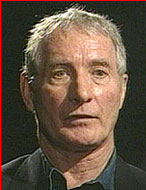 Maybe we ought to retire the word “hero” and designate the characters whose needs and actions drive the story, more technically and accurately, as “the protagonist.”
Maybe we ought to retire the word “hero” and designate the characters whose needs and actions drive the story, more technically and accurately, as “the protagonist.”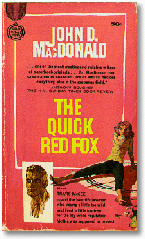 And on we plod, continuing our seemingly interminable discussion of the evolution of superheroes. This week, let’s leave the capes and masks and other such accoutrements, and the “super” prefix, in the trunk and concentrate on the hero part.
And on we plod, continuing our seemingly interminable discussion of the evolution of superheroes. This week, let’s leave the capes and masks and other such accoutrements, and the “super” prefix, in the trunk and concentrate on the hero part. According to my reading of the nightly news (between 4 PM and 7 PM, we watch CNN, BBC, and NBC), illegal immigration is a huge issue as we go into the primary season for the various presidential nominations. According to various estimates, there are as many as 12 million people living in the United States who are in the country illegally. Some entered legally, as students or tourists, and didn’t leave when they were supposed to. Others snuck in without going through the proper channels.
According to my reading of the nightly news (between 4 PM and 7 PM, we watch CNN, BBC, and NBC), illegal immigration is a huge issue as we go into the primary season for the various presidential nominations. According to various estimates, there are as many as 12 million people living in the United States who are in the country illegally. Some entered legally, as students or tourists, and didn’t leave when they were supposed to. Others snuck in without going through the proper channels.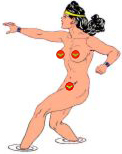 In my dotage, I’m coming to believe that a little adolescent rebellion is usually a good thing, and if the rebellion creeps a year or two into full, card-carrying adulthood, that’s okay. Much after the fact, I learned of some things my kid did in his Greenwich Village youth: I’m not sorry he did them and I’m glad I didn’t know of them until much later.
In my dotage, I’m coming to believe that a little adolescent rebellion is usually a good thing, and if the rebellion creeps a year or two into full, card-carrying adulthood, that’s okay. Much after the fact, I learned of some things my kid did in his Greenwich Village youth: I’m not sorry he did them and I’m glad I didn’t know of them until much later.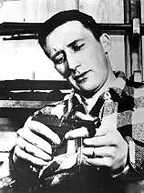 So where we at? For the past month or so, we have, in a scattershot and disorganized way, been discussing the various elements involved in the evolution of superheroes. I don’t think we’ve come to any conclusions worthy of being preserved for the ages, nor should we: things change, darnit. But maybe a little tentative upsumming would not be inappropriate.
So where we at? For the past month or so, we have, in a scattershot and disorganized way, been discussing the various elements involved in the evolution of superheroes. I don’t think we’ve come to any conclusions worthy of being preserved for the ages, nor should we: things change, darnit. But maybe a little tentative upsumming would not be inappropriate.








